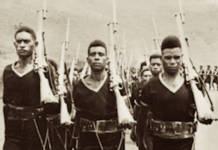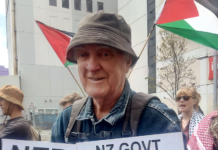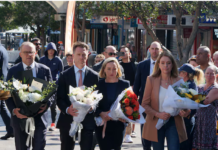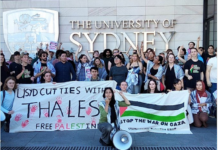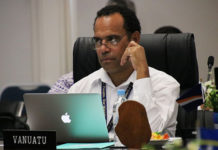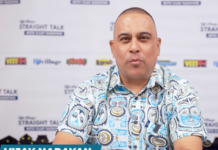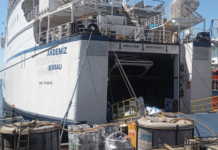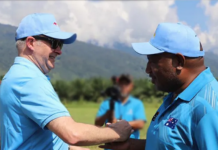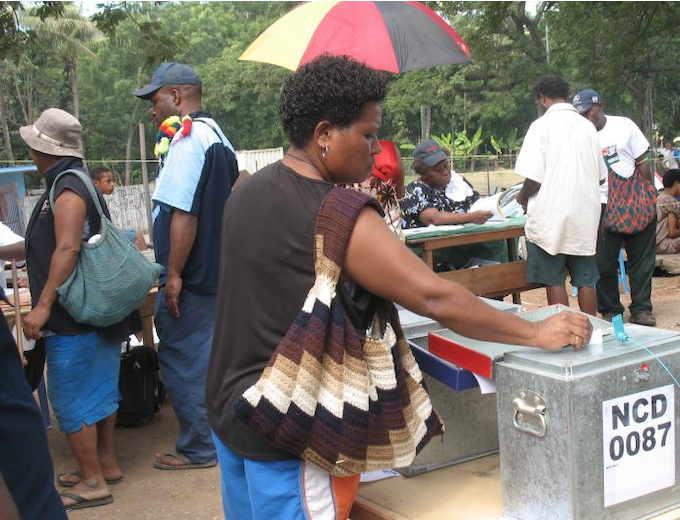
ANALYSIS: By
The results of the 2022 Papua New Guinea elections confirm that women will once again sit in PNG’s Parliament — after a hiatus of five years.
The 2022 elections were therefore not exactly a repeat of the 2017 elections for women candidates, but much more work is needed if significant numbers of women are to be elected.
The two new women MPs are Rufina Peter, who won the governorship of Central Province as an endorsed candidate of the People’s National Congress, and Kessy Sawang, who won the Rai Coast Open seat as an endorsed candidate of the People First Party.
- READ MORE: Hope for women in PNG elections – Peter becomes lone female governor
- Other PNG election reports
There were 10 other women candidates who were placed within the top five for the seats that they contested (see the list at the end of this article).
So, unfortunately for democracy, PNG’s 11th Parliament will again be an overwhelmingly male-dominated legislature.
However, a promising trend evident in the 2022 elections was a significant increase in the number of women candidates endorsed by political parties. Data provided by the Integrity of Political Parties and Candidates Commission indicated that, of the 159 women candidates nominated in 2022, 64 (40.3 percent) were endorsed by political parties.
In 2017, there were 167 women candidates, but only 38 (22.8 percent) were endorsed by political parties.
Doubling of proportion
This is an almost doubling of the proportion of women candidates with party endorsement for the 2022 national elections, despite a slight decline in the number of women candidates.
Most parties endorsed between one and four women candidates, but the National Alliance endorsed five, PANGU endorsed seven, and the new People’s Resource Awareness party endorsed a total of nine — a record number for PNG.
But, while the results for women candidates were not an exact repeat of the 2017 elections, the barriers and challenges that women experienced most definitely were.
PNG media reported many problems with the conduct of the 2022 elections by the Electoral Commission.
Several of the PNG Post-Courier editorials have been very critical, claiming that the elections may be the “worst since independence”. PNG election analyst Terence Wood concluded that whether or not it was as bad as 2017, the 2022 elections “have still been much worse than the people of PNG deserve”.
Many thousands of voters could not vote because their names were not on the electoral roll, which had not been updated since 2017. There was also inadequate security at polling and counting centres, and poor logistics and handling of election materials.
As a result, the elections were marred by allegations of fraud, corruption and foul play, which were the catalyst for violence and chaos in parts of the country, including in the capital Port Moresby.
Poor conduct details
The post-election reports from international and domestic election observer teams will document in detail the poor conduct of the 2022 elections.
Violence, bribery, vote rigging, stolen ballot papers, and manipulation of counting at counting centres all disadvantage women. Female candidates publicly condemned the undemocratic nature and practices during polling and counting in Enga and Jiwaka provinces.
They were joined by former member for Eastern Highlands Province Julie Soso, NGOs, and more than 100 women leaders who protested about the way in which their right to vote had been taken away by corruption, violence and intimidation by male candidates and their supporters.
Some women candidates in Port Moresby used their social media platforms to call corrupt electoral officials, candidates and their supporters to account.
The dangerous and unfair electoral environment in certain areas may have also led some capable women to decide not to contest the elections. In the past three elections there was a steady rise in the number of women candidates, but not so in 2022.
At the 2022 elections, the number of women candidates decreased by 5 percent from 167 in 2017 to 159 in 2022.
In light of the results of the 2022 elections, the PNG government should reconsider the role that temporary special measures (TSMs) could play in increasing the number of women elected to Parliament.
Formidable challenge
However, attaining political will at the highest level will be a formidable challenge.
The Special Parliamentary Committee on Gender-Based Violence (SPC-GBV) tabled the second and final Report of the Committee on 21 April 2022, which included recommendations for immediate action by the next government in respect of TSMs and other measures to support the political empowerment of women.
They included support for the 2011 proposal to reserve 22 seats for women, and a party candidate quota, as specified in the amended Organic Law on the Integrity of Political Parties and Candidates (OLIPPAC).
Prime Minister James Marape has already rejected outright the need for reserved seats for women.
Making reference to Rufina Peter’s election to Governor of Central Province, he claimed that “any women can win any election, they do not need special seats in Parliament”.
He maintained that women can win on their merits, but acknowledged the flaws with the electoral process in 2022 that made it much more difficult for women to get elected, and promised to improve the electoral process to make elections free and fair.
However, Marape has yet to comment on the amended OLIPPAC, which was approved by the National Executive Council and tabled in Parliament on 3 January 2020. This legislation includes section 56(4) which states:
“A registered political party shall, from the total number of candidates nominated by the party in a general election, ensure that twenty percent of these candidates are women candidates.”
More candidates needed
While 64 women candidates were endorsed by political parties in 2022, many more such candidates are needed. Political party quotas for women candidates are used successfully by many countries around the world and could, if implemented, significantly increase the number of women candidates in PNG.
This form of TSM still allows voters to decide which candidate, based on their merits, they want to represent them.
Political party quotas would therefore be a positive step, but will not be enough. What is also needed is a holistic reform of the electoral process to make it more accommodating of women as both candidates and voters.
The 10 women who finished between second and fifth were:
Jean Eparo Parkop – an Independent candidate who contested for the second time for Northern (Oro) Regional and came second.
Delilah Gore – a People’s National Congress party candidate who contested for the third time for Sohe Open and came third.
Jennifer Baing – a People’s Movement for Change party candidate who contested for Morobe Regional and came third.
Diane Unagi-Koiam – a United Labour Party candidate who contested for Moresby Northeast Open and came third.
Lynn Ozanne Ronnie – an Independent candidate who contested for Manus Open and came third.
Michelle Hau’ofa – a People’s Party candidate who contested for Moresby South Open and came fourth.
Vikki Mossine – a Future of PNG Party candidate who contested for Rigo Open and came fourth.
Joyce Grant – a National Alliance Party candidate who contested for Kiriwina-Goodenough Open and came fifth.
Jennifer Rudd – a PANGU party candidate who contested for Milne Bay Regional and came fifth.
Rubie Wanaru Kerepa – an Independent candidate who contested for Kavieng Open and came fifth.
All were first-time candidates except for the first two, and eight of the 10 candidates were endorsed by political parties.
Orovu Sepoe is a gender equity and social inclusion specialist. Currently working as a consultant, she was formerly a senior lecturer at the University of Papua New Guinea. Dr Lesley Clark served for five terms in the Queensland Parliament in Australia. She has participated in several election observation missions, including the last three in Papua New Guinea. Teddy Winn is a PhD candidate in political science at James Cook University. This article was first published here by the DevPolicy Blog and is republished under a Creative Commons licence.



